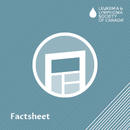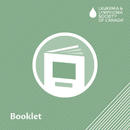How will cancer affect how you look?
Increased appetite or weight gain
You may experience weight gain as a result of increased appetite or fluid retention (bloating) associated with certain drug therapies. Eating well helps people living with cancer feel better and stay stronger during and after cancer treatment. If you eat well and keep or achieve a healthy weight, you will usually manage the side effects of treatment better. Good nutrition also helps the body replace blood cells and healthy tissues that are damaged as a result of cancer treatment. Weight-loss diets are not recommended without proper medical guidance. For help, ask your oncologist to refer you to a dietitian who can design an appropriate diet for you. Or, contact us to speak with a Community Services Manager for other nutrition resources.
What you can do
- Limit saturated and trans fats, like butter, in your meals. Use healthy oils, like olive or canola oils, instead.
- Use less sugar and salt in your food.
- Sip water throughout the day to avoid dehydration.
- Add a short walk or other exercise to your daily routine. Consult your doctor before starting a new exercise program.
- Get enough sleep each night. It is recommended that adults get 7-9 hours per night.
- Choose not to use tobacco or abuse drugs, and limiting or not drinking alcohol.
Loss of appetite or weight loss
Decreased appetite can be very challenging and distressing especially when it results in weight loss. It can be difficult for you to cope with a decreased or changed appetite or suddenly disliking foods you once liked. If your appetite continues to be poor, your doctor may wish to try an appetite stimulant.
What you can do
- Eat small meals or snacks frequently throughout the day.
- Keep prepared snacks or small meals on hand and be sure to take them with you when you will be away from home.
- Try high calorie liquids such as juices, soups or shakes if eating solid foods is a problem.
- Use healthy fats like olive oil, avocado, and nut butters to boost calories.
- Choose soft foods or foods that can be cooked until tender.
- Try new foods and recipes to accommodate changes in taste or smell.
- When possible, take a walk before meals to improve appetite.
- Eat with friends or family members when possible.
- Make a list of your favorite foods and be sure to have these foods on hand.
- Try over-the-counter high calorie, high protein drinks like Ensure or Boost.
- Keep snacks and desserts handy and visible.
Your hair
With chemotherapy, hair loss can range from hair thinning to baldness and may be sudden or slow. You may also lose hair from other areas of your body including your eyelashes, eyebrows and pubic hair. Hair growth typically resumes after treatment ends. After treatment, your hair’s thickness, texture, and color may be different from before treatment.
Radiation therapy can also cause hair loss, but unlike chemotherapy, it only affects the specific area that is being treated. Hair loss may be temporary or permanent. Often, with lower doses of radiation, hair loss is temporary, and hair grows back. Treatment with very high doses of radiation may cause hair to grow back thinner or not at all in that spot.
What you can do
- Wash your hair and scalp every 2 to 4 days with a fragrance-free shampoo and conditioner. Rinse your hair well, and pat it dry with a soft towel.
- Continue to comb or brush your hair, even if hair loss begins. To remove tangles, use a soft-bristle brush, comb or wet fingers. Gently comb hair at the ends and work your way up. Not combing or washing your hair will not prevent hair loss.
- Use hats, scarves, caps or bandanas to keep your head warm and to protect the delicate scalp from sunburn.
- If your scalp is dry, use mineral oil or coconut oil.
- Avoid perms, chemical relaxers, permanent hair dyes, bleach and hairspray, which may damage hair and irritate the scalp. Do not use curlers, hair straighteners or curling irons because the heat can damage your hair.
- Do not put your hair in braids, corn rows or tight ponytails; all of these can cause breakage. Likewise, do not use clips or ties that hold the hair tightly.
- If you plan to wear a wig, see a wig stylist before hair loss is expected so the color, style and texture of your hair can be matched. Or save some pieces of your own hair and take them with you to the stylist.
- You may want to get a short haircut or shave your head before hair loss begins.
- If you lose your eyebrows, you can draw them in with a makeup pencil.
- You may also consider getting a complimentary beauty workshop that’s specific to women experiencing cancer. Learn more from Look Good Feel Better.
Your skin
• Dry skin
• Redness
• Itchiness
• Skin lesions
Tell your doctor immediately if you notice:
• Sudden or severe itching, rash and/or hives – these may be signs of an allergic reaction
• Red, swollen or tender skin and/or discharge from skin, especially around a wound, sore, rash or IV catheter site – these may be signs of an infection.
If you experience any skin changes, see your doctor as soon as possible. Some changes are related to the primary cancer or infection, and treatment for these side effects can make you more comfortable and prevent serious problems from developing. Your doctor can recommend or prescribe appropriate treatment including topical solutions (creams, lotions or gels) to soothe your skin or relieve itching.
What you can do
- Take a warm (not hot) bath or shower every day with mild, unscented soap or body wash.
- Pat skin dry (instead of rubbing) with a towel.
- Use unscented lotion or moisturizing cream immediately after shower to prevent cracking.
- Use lip balm for dry or chapped lips.
- Avoid activities that put you at risk for cuts, injuries or burns.
- Use an electric shaver, not a razor, to prevent cuts.
- Drink small sips of water regularly throughout the day.
- Avoid direct sun when possible. Wear a broad-spectrum sunscreen with SPF 30 or higher and reapply every 2 hours.
- Use unscented, gentle laundry detergent. Some laundry detergents can irritate sensitive skin.
Your fingernails and toenails
• Nails may darken, crack or become brittle.
• White ridges or bands of discoloration may appear along the nails.
• Nail beds may darken.
It is possible, although rare, that you may lose all or part of your fingernails and toenails. Except in extremely rare cases, nails will grow back or return to normal after chemotherapy ends. Monitor what you notice and talk to you doctor about any changes in your nails.
What you can do
- Keep your fingernails and toenails trimmed short.
- Wear cotton gloves when working. When cleaning or washing dishes, use cotton-lined rubber gloves to keep your hands from becoming dry and irritated. Do not use unlined rubber gloves because they seal in sweat and irritate the skin.
- Avoid manicures, pedicures and artificial nails, which may increase the risk of infection.
- Do not bite your nails or pick at your cuticles.
- Nail polish can help strengthen and may protect nails. To take off polish, use "oily" remover to prevent drying.
- Soak your hands in natural oils (such as olive oil), to relieve dryness.
- Wear loose-fitting shoes with cushioned cotton socks.








